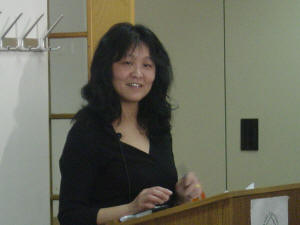China’s domestic political arrangements often fuel misgivings about the rise of China in the West. While liberals are optimistic about the effects of China’s economic change on long-term political liberalization, realists remain skeptical of China’s illiberal political institutions and see aggressive deterrence as the best strategy to confront an ascending China. Central to the perception and suspicion of China as an illiberal regime is the tenacity of the one party system, and a communist party at that. Whether a rising China under a non-Communist dictatorship would evoke as much mistrust is anyone’s guess, but being under a Communist one certainly seems to make things worse.
In this talk I will show that the Communist Party has changed significantly in the major areas that have given rise to misgivings about its predictability and norms. Some of these changes have been responses to the changing socio-economic forces; while others–and the more important ones–have been instituted by the party leadership. Out of these changes emerges a one-dominant-party system that may not conform to expectations of liberal democracy, but increasingly more closely to Chinese cultural values and traditions: a Confucian-style policy.




